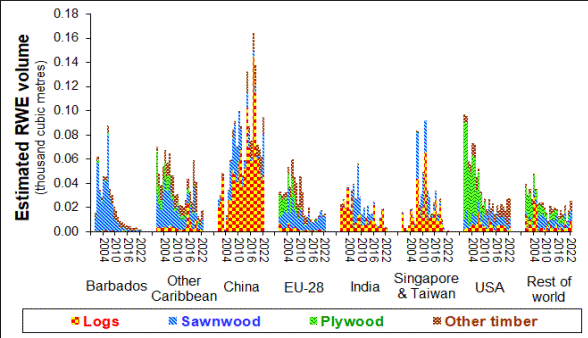ONCE again, the combined efforts of the Kaieteur News and the Opposition party APNU/PNC is bent on stalling Guyana’s progress by declaring foreign investors as illegitimate and as being engaged in criminal activities. During the past days, I have been steadfastly following the misinformation being propagated by Kaieteur News, which is then endorsed by the gullible and attention-seeking APNU/PNC opposition political party.
I have been associated with the forestry sector for over fifteen years, and the investment and technology implemented by Bai Shan Lin in its forest activities can only be described as remarkable. I was privileged to pass through one of the concessions where the company has been conducting its activities, and was amazed at its efforts at sustainable forest management and harvesting.
This must be recognized, and the company must be commended, as there are some Guyanese companies which are far from matching the investment and efforts of the Chinese Company Bai Shan Lin.
On a more panoramic view, over the past few months, the opposition-aligned Kaieteur News and the APNU/PNC have undertaken a well-planned campaign against the Chinese living in Guyana. I say this with no apology, as this is the fact and the word is out on the street. Guyana is said to be the land of six races, yet Kaieteur News and the Opposition are making every effort to disenfranchise a Chinese company that has created thousands of jobs and billions of dollars’ worth in investment in Guyana.
I cry shame…shame…shame on Kaieteur News and APNU for their continued attacks on all Chinese living, working, and investing in Guyana.
It is a pity that Kaieteur News and the political Opposition are attacking a legitimate investment to gain cheap political mileage.
While I agree that laws and regulations need to be adhered to, Kaieteur News and the Opposition need to bring the evidence and instances where there are breaches, rather than speculating and spreading misinformation.
WILLIAM TERENCE JNR
From the Chronicle.









